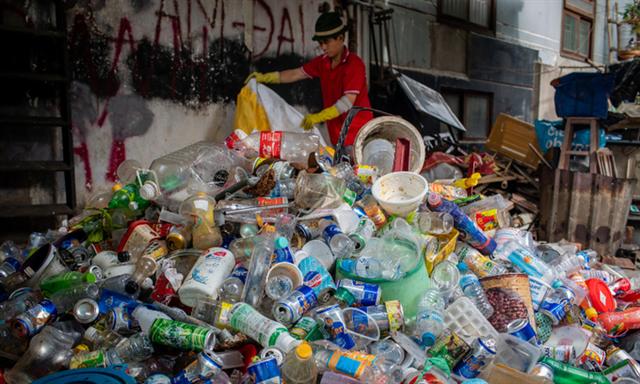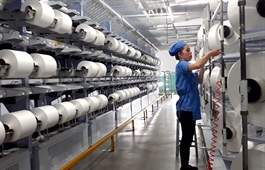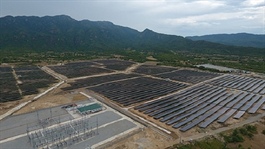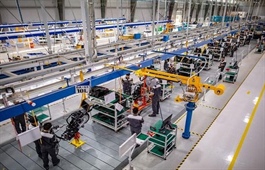Inefficient plastics recycling costs Vietnam up to $2.9 bln a year
Inefficient plastics recycling costs Vietnam up to $2.9 bln a year
Vietnam is losing from $2.2 -2.9 billion a year for failing to recycle most of its disposed plastics due to the lack of a circulation mechanism, a study found.
A man sorts garbage in Go Vap District, Ho Chi Minh City, August 5, 2021. Photo by VnExpress/Thanh Nguyen |
Only 33 percent of the total 3.9 million tons of the commonly used plastics disposed per year in Vietnam are recovered and recycled, according to a new study by International Finance Corporation (IFC) and World Bank.
This means 75 percent of the material value of the plastics – equivalent to $2.2-2.9 billion per year – is lost.
"Rapid urbanization and a rising middle class have significantly increased consumption of plastic products and packaging, making regional emerging markets including Vietnam a hot spot for plastics pollution," said Carolyn Turk, World Bank country director for Vietnam.
However, investments in waste management infrastructure have not kept pace, she added.
There are several reasons for the high unrecycled rate, including the lack of sustained local demand for recycled plastics, heavy reliance on plastic scrap imports, absence of design-for-recycling standards and a waste management system that prioritizes collection and disposal over recycling.
Plastic pollution caused by environmental leakage to the marine environment is especially acute for Vietnam given its long coastline.
Several recommendations for Vietnam to unlock additional material value through plastic recycling include enabling plastic circularity through policies, increasing waste collection and sorting, and mandating design-for-recycling standards for all plastics, especially packaging.
"A circular economy is critical for Vietnam to meet low-carbon growth targets. Recycling plastics not only addresses plastics pollution, but also avoids greenhouse gas emissions and saves valuable material resources," said Kyle Kelhofer, IFC country manager for Vietnam, Cambodia, and Lao PDR.
Improving the business case for plastic recycling will mobilize increased private sector investment to help address the scourge of plastics pollution, he added.






















